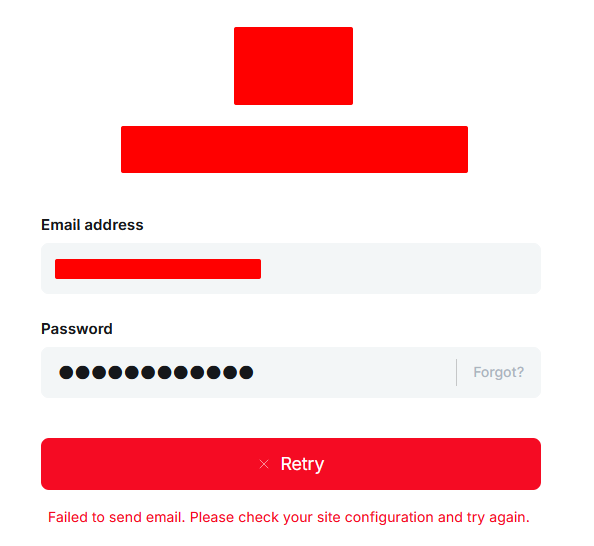Optimise Firestore Queries: The UUID List Strategy for Minimal Indexes
A comprehensive guide to reducing index complexity while maintaining query performance

A comprehensive guide to reducing index complexity while maintaining query performance
Introduction
Cloud Firestore is a powerful NoSQL database, but its indexing requirements can quickly become complex and costly as your application scales. One elegant solution that many developers overlook is using a separate field containing a list of UUIDs to optimize filtering operations. This approach can dramatically reduce the number of composite indexes needed while maintaining excellent query performance.
In this article, we’ll explore how to implement this strategy, when to use it, and the performance benefits it provides.
The Problem: Index Explosion
Traditional Firestore optimization often leads to what I call “index explosion.” Consider a typical e-commerce scenario where you need to filter products by multiple criteria:
- Category
- Price range
- Brand
- Availability
- User preferences
- Geographic region
With traditional approaches, you’d need composite indexes for every possible combination of these filters. This quickly becomes unmanageable:
// Traditional approach requiring multiple composite indexes
db.collection('products')
.where('category', '==', 'electronics')
.where('price', '<=', 500)
.where('brand', '==', 'Apple')
.where('available', '==', true)Each combination requires a separate composite index, leading to:
- Increased storage costs
- Slower write operations
- Complex index management
- Higher maintenance overhead
The UUID List Solution
The UUID list strategy involves creating a separate field that contains an array of UUIDs representing different filter combinations. Instead of querying multiple fields, you query a single array field using Firestore’s array-contains or array-contains-any operators.
Core Concept
// Document structure with UUID list
{
id: "product123",
name: "iPhone 14",
price: 999,
category: "electronics",
brand: "Apple",
// The magic field - contains UUIDs for different filter combinations
filterUUIDs: [
"uuid-electronics-apple",
"uuid-electronics-premium",
"uuid-apple-available",
"uuid-premium-available",
"uuid-electronics-apple-premium"
],
// ... other product data
}Implementation Strategy
Step 1: Design Your UUID Schema
Create a systematic approach to generating UUIDs that represent filter combinations:
class FilterUUIDGenerator {
static generateUUID(filters) {
// Sort filters to ensure consistency
const sortedFilters = Object.keys(filters)
.sort()
.map(key => `${key}-${filters[key]}`)
.join('-');
return `uuid-${sortedFilters}`;
}
static generateAllCombinations(productData) {
const uuids = [];
const filters = {
category: productData.category,
brand: productData.brand,
priceRange: this.getPriceRange(productData.price),
availability: productData.available
};
// Generate UUIDs for single filters
Object.keys(filters).forEach(key => {
uuids.push(this.generateUUID({ [key]: filters[key] }));
});
// Generate UUIDs for combinations
this.generateCombinations(filters, 2).forEach(combo => {
uuids.push(this.generateUUID(combo));
});
this.generateCombinations(filters, 3).forEach(combo => {
uuids.push(this.generateUUID(combo));
});
return uuids;
}
static getPriceRange(price) {
if (price < 100) return 'budget';
if (price < 500) return 'mid-range';
return 'premium';
}
static generateCombinations(obj, r) {
const keys = Object.keys(obj);
const combinations = [];
function combine(start, combo) {
if (combo.length === r) {
const result = {};
combo.forEach(key => result[key] = obj[key]);
combinations.push(result);
return;
}
for (let i = start; i < keys.length; i++) {
combine(i + 1, [...combo, keys[i]]);
}
}
combine(0, []);
return combinations;
}
}Step 2: Document Creation with UUID Generation
async function createProductWithUUIDs(productData) {
const filterUUIDs = FilterUUIDGenerator.generateAllCombinations(productData);
const docData = {
...productData,
filterUUIDs,
createdAt: new Date(),
updatedAt: new Date()
};
await db.collection('products').add(docData);
}
// Example usage
await createProductWithUUIDs({
name: "iPhone 14",
category: "electronics",
brand: "Apple",
price: 999,
available: true
});Step 3: Optimized Querying
class OptimizedQuery {
static async queryProducts(filters) {
const targetUUID = FilterUUIDGenerator.generateUUID(filters);
const snapshot = await db.collection('products')
.where('filterUUIDs', 'array-contains', targetUUID)
.get();
return snapshot.docs.map(doc => ({ id: doc.id, ...doc.data() }));
}
static async queryProductsMultiple(filterSets) {
const targetUUIDs = filterSets.map(filters =>
FilterUUIDGenerator.generateUUID(filters)
);
// Use array-contains-any for multiple filter combinations
const snapshot = await db.collection('products')
.where('filterUUIDs', 'array-contains-any', targetUUIDs)
.get();
return snapshot.docs.map(doc => ({ id: doc.id, ...doc.data() }));
}
}
// Usage examples
const electronics = await OptimizedQuery.queryProducts({
category: 'electronics'
});
const appleElectronics = await OptimizedQuery.queryProducts({
category: 'electronics',
brand: 'Apple'
});
const multipleFilters = await OptimizedQuery.queryProductsMultiple([
{ category: 'electronics', brand: 'Apple' },
{ category: 'books', brand: 'Penguin' }
]);Index Requirements
The beauty of this approach is its minimal index requirements. Array-contains / array-contains-any / in / not-in queries use special operators and do not require extra indexes, meaning you only need:
- Single-field index on
filterUUIDs(automatically created) - Composite indexes only when combining with other non-UUID filters
# firestore.indexes.json - Minimal index configuration
{
"indexes": [
{
"collectionGroup": "products",
"queryScope": "COLLECTION",
"fields": [
{ "fieldPath": "filterUUIDs", "arrayConfig": "CONTAINS" },
{ "fieldPath": "createdAt", "order": "DESCENDING" }
]
}
]
}Advanced Optimization Techniques
1. Hierarchical UUID Structure
For complex filtering scenarios, implement hierarchical UUIDs:
class HierarchicalUUIDGenerator {
static generateHierarchicalUUIDs(productData) {
const uuids = [];
// Level 1: Single attributes
uuids.push(`L1-cat-${productData.category}`);
uuids.push(`L1-brand-${productData.brand}`);
uuids.push(`L1-price-${this.getPriceRange(productData.price)}`);
// Level 2: Pairs
uuids.push(`L2-cat-brand-${productData.category}-${productData.brand}`);
uuids.push(`L2-cat-price-${productData.category}-${this.getPriceRange(productData.price)}`);
// Level 3: Triples and beyond
uuids.push(`L3-cat-brand-price-${productData.category}-${productData.brand}-${this.getPriceRange(productData.price)}`);
return uuids;
}
}2. Dynamic UUID Management
Implement systems to add new UUIDs when filter requirements change:
async function updateProductUUIDs(productId, newFilters) {
const docRef = db.collection('products').doc(productId);
const doc = await docRef.get();
const currentData = doc.data();
const newUUIDs = FilterUUIDGenerator.generateAllCombinations({
...currentData,
...newFilters
});
await docRef.update({
...newFilters,
filterUUIDs: newUUIDs,
updatedAt: new Date()
});
}3. UUID Cleanup and Maintenance
Regular maintenance ensures optimal performance:
class UUIDMaintenance {
static async cleanupUnusedUUIDs() {
const snapshot = await db.collection('products').get();
const usedUUIDs = new Set();
snapshot.docs.forEach(doc => {
const data = doc.data();
data.filterUUIDs?.forEach(uuid => usedUUIDs.add(uuid));
});
// Analytics: track UUID usage patterns
console.log(`Total unique UUIDs in use: ${usedUUIDs.size}`);
// Implement cleanup logic based on usage patterns
return Array.from(usedUUIDs);
}
static async optimizeUUIDDistribution() {
const products = await db.collection('products').get();
const uuidCounts = {};
products.docs.forEach(doc => {
const uuids = doc.data().filterUUIDs || [];
uuids.forEach(uuid => {
uuidCounts[uuid] = (uuidCounts[uuid] || 0) + 1;
});
});
// Identify most/least common UUIDs for optimization
return Object.entries(uuidCounts)
.sort(([,a], [,b]) => b - a);
}
}Performance Benefits
Query Performance
- Reduced read costs: Single array-contains query vs multiple field queries
- Faster execution: Cloud Firestore selects the optimal index for your query with minimal index scanning
- Predictable performance: Array operations scale consistently
Index Management
- Minimal composite indexes: Dramatically reduced from O(n²) to O(1) for most queries
- Faster writes: Fewer indexes to update during document creation/updates
- Reduced storage costs: Significantly smaller index footprint
Scalability Benefits
- Flexible filtering: Easy to add new filter combinations without index changes
- Maintenance simplicity: Single field to manage vs multiple composite indexes
- Future-proofing: New filter requirements don’t require infrastructure changes
Critical Limitations and Constraints
Before implementing the UUID list strategy, you must understand Firestore’s array-contains limitations:
Array-Contains Query Limitations
Query Limits:
array-contains-anyqueries are limited to 30 comparison values maximum (previously 10, updated in recent versions)- Only one
array-contains-anyoperation per query - you cannot combine multiple array-contains queries not-inqueries remain limited to 10 values- You cannot combine
array-contains-anywithinornot-inin the same query
Document Size Constraints:
- Each document has a maximum size of 1 MiB (1,048,576 bytes)
- Maximum 20,000 fields per document including nested fields
- Array size is practically limited by the document size constraint
Working Within the Limitations
class LimitationAwareUUIDGenerator {
static generateOptimizedUUIDs(productData, maxUUIDs = 100) {
const uuids = [];
// Prioritize most common filter combinations first
const priorityFilters = this.getPriorityFilters(productData);
// Add high-priority single filters
priorityFilters.forEach(filter => {
if (uuids.length < maxUUIDs) {
uuids.push(this.generateUUID(filter));
}
});
// Add combinations only if space allows
const combinations = this.generateCombinations(productData, 2);
combinations.forEach(combo => {
if (uuids.length < maxUUIDs) {
uuids.push(this.generateUUID(combo));
}
});
return uuids;
}
static estimateDocumentSize(productData, uuids) {
// Rough estimation: field names + values + overhead
const baseDataSize = JSON.stringify(productData).length;
const uuidArraySize = JSON.stringify(uuids).length;
const fieldNamesSize = Object.keys(productData).join('').length;
const totalSize = baseDataSize + uuidArraySize + fieldNamesSize + 1000; // overhead
if (totalSize > 1000000) { // Close to 1MiB limit
console.warn(`Document size approaching limit: ${totalSize} bytes`);
}
return totalSize;
}
}Handling Array-Contains-Any Limit
When you need to query more than 30 UUIDs, implement pagination or chunking:
class LimitedArrayQuery {
static async queryWithLargeUUIDSet(uuidList) {
const results = [];
const chunkSize = 30;
// Split into chunks of 30 (the array-contains-any limit)
for (let i = 0; i < uuidList.length; i += chunkSize) {
const chunk = uuidList.slice(i, i + chunkSize);
const snapshot = await db.collection('products')
.where('filterUUIDs', 'array-contains-any', chunk)
.get();
snapshot.docs.forEach(doc => {
const docData = { id: doc.id, ...doc.data() };
// Avoid duplicates if documents match multiple UUIDs
if (!results.find(item => item.id === doc.id)) {
results.push(docData);
}
});
}
return results;
}
static async queryMultipleFilters(filterGroups) {
// When you need complex OR logic across different filter types
const promises = filterGroups.map(async (filters) => {
const uuid = FilterUUIDGenerator.generateUUID(filters);
const snapshot = await db.collection('products')
.where('filterUUIDs', 'array-contains', uuid)
.get();
return snapshot.docs.map(doc => ({ id: doc.id, ...doc.data() }));
});
const resultArrays = await Promise.all(promises);
// Merge and deduplicate results
const allResults = resultArrays.flat();
const uniqueResults = Array.from(
new Map(allResults.map(item => [item.id, item])).values()
);
return uniqueResults;
}
}Document Size Management Strategy
class DocumentSizeManager {
static async createProductWithSizeValidation(productData) {
let uuids = FilterUUIDGenerator.generateAllCombinations(productData);
// Check if document would exceed size limits
let estimatedSize = this.estimateSize(productData, uuids);
if (estimatedSize > 900000) { // 90% of 1MiB limit
// Reduce UUIDs to essential combinations only
uuids = this.getEssentialUUIDs(productData);
estimatedSize = this.estimateSize(productData, uuids);
console.warn(`Reduced UUIDs due to size constraints. New size: ${estimatedSize}`);
}
const docData = {
...productData,
filterUUIDs: uuids,
createdAt: new Date()
};
await db.collection('products').add(docData);
}
static getEssentialUUIDs(productData) {
// Only include the most important filter combinations
return [
`category-${productData.category}`,
`brand-${productData.brand}`,
`price-${this.getPriceRange(productData.price)}`,
`category-brand-${productData.category}-${productData.brand}`,
`category-price-${productData.category}-${this.getPriceRange(productData.price)}`
];
}
static estimateSize(productData, uuids) {
// More accurate size estimation
const jsonString = JSON.stringify({
...productData,
filterUUIDs: uuids
});
return Buffer.byteLength(jsonString, 'utf8');
}
}When to Use This Strategy
Ideal Scenarios
✅ Multiple filter combinations: When you need to support many different filter combinations
✅ Frequent filter changes: When filter requirements evolve regularly
✅ Cost optimization: When index costs are a significant concern
✅ Complex boolean logic: When you need OR-like operations across filters
✅ Moderate UUID counts: When you can keep UUID arrays under 100 elements per document
✅ Known query patterns: When you can predict and prioritize common filter combinations
Not Recommended For
❌ Simple single-field queries: Traditional indexes are more efficient
❌ Range queries: When you need numerical range filtering
❌ Real-time analytics: When you need complex aggregation queries
❌ Large UUID arrays: When documents would exceed Firestore’s size limits
❌ Unpredictable queries: When filter combinations are completely dynamic
❌ More than 30 simultaneous filters: Due to array-contains-any limitations
Implementation Checklist
Planning Phase
- Identify all possible filter combinations
- Design UUID naming convention
- Estimate UUID array sizes per document (keep under 100 UUIDs)
- Plan for future filter requirements
- Validate document sizes stay under 1 MiB limit
- Consider array-contains-any 30-value limitation
- Plan chunking strategy for large UUID sets
Development Phase
- Implement UUID generation logic
- Create document creation/update functions
- Build query optimization layer
- Add error handling and validation
Testing Phase
- Performance test with realistic data volumes
- Compare query costs vs traditional approaches
- Test edge cases (empty filters, large combinations)
- Validate index efficiency
Production Phase
- Monitor query performance metrics
- Track UUID usage patterns
- Implement maintenance routines
- Plan for scaling considerations
- Monitor document sizes regularly
- Handle array-contains-any limit gracefully
- Implement fallback strategies for complex queries
Real-World Example: E-commerce Product Filtering
Let’s implement a complete e-commerce filtering system:
class EcommerceFilterSystem {
constructor() {
this.db = firebase.firestore();
}
async addProduct(productData) {
const enrichedData = {
...productData,
priceRange: this.calculatePriceRange(productData.price),
createdAt: new Date()
};
const filterUUIDs = this.generateProductUUIDs(enrichedData);
await this.db.collection('products').add({
...enrichedData,
filterUUIDs
});
}
generateProductUUIDs(product) {
const attributes = {
category: product.category,
brand: product.brand,
priceRange: product.priceRange,
inStock: product.inventory > 0,
rating: product.rating >= 4 ? 'high' : 'standard'
};
const uuids = [];
// Single attribute UUIDs
Object.entries(attributes).forEach(([key, value]) => {
uuids.push(`${key}-${value}`);
});
// Popular combination UUIDs
uuids.push(`category-brand-${attributes.category}-${attributes.brand}`);
uuids.push(`category-price-${attributes.category}-${attributes.priceRange}`);
uuids.push(`brand-price-${attributes.brand}-${attributes.priceRange}`);
uuids.push(`category-stock-${attributes.category}-${attributes.inStock}`);
// Premium combination for high-performance queries
uuids.push(`premium-${attributes.category}-${attributes.brand}-${attributes.priceRange}`);
return uuids;
}
async searchProducts(filters, options = {}) {
let query = this.db.collection('products');
if (filters && Object.keys(filters).length > 0) {
const targetUUID = this.buildFilterUUID(filters);
query = query.where('filterUUIDs', 'array-contains', targetUUID);
}
if (options.orderBy) {
query = query.orderBy(options.orderBy, options.order || 'asc');
}
if (options.limit) {
query = query.limit(options.limit);
}
const snapshot = await query.get();
return snapshot.docs.map(doc => ({ id: doc.id, ...doc.data() }));
}
buildFilterUUID(filters) {
const parts = Object.entries(filters)
.sort(([a], [b]) => a.localeCompare(b))
.map(([key, value]) => `${key}-${value}`);
return parts.join('-');
}
calculatePriceRange(price) {
if (price < 50) return 'budget';
if (price < 200) return 'mid';
if (price < 500) return 'premium';
return 'luxury';
}
}
// Usage
const filterSystem = new EcommerceFilterSystem();
// Add products
await filterSystem.addProduct({
name: 'iPhone 14',
category: 'electronics',
brand: 'Apple',
price: 999,
inventory: 50,
rating: 4.5
});
// Search with optimized queries
const results = await filterSystem.searchProducts({
category: 'electronics',
brand: 'Apple'
}, {
orderBy: 'createdAt',
order: 'desc',
limit: 20
});Monitoring and Analytics
Track the performance of your UUID-based filtering:
class FilterAnalytics {
static async trackQueryPerformance(filterUUID, startTime) {
const duration = Date.now() - startTime;
await db.collection('query_analytics').add({
filterUUID,
duration,
timestamp: new Date()
});
}
static async getPopularFilters(days = 7) {
const cutoff = new Date(Date.now() - days * 24 * 60 * 60 * 1000);
const snapshot = await db.collection('query_analytics')
.where('timestamp', '>=', cutoff)
.get();
const filterCounts = {};
snapshot.docs.forEach(doc => {
const uuid = doc.data().filterUUID;
filterCounts[uuid] = (filterCounts[uuid] || 0) + 1;
});
return Object.entries(filterCounts)
.sort(([,a], [,b]) => b - a)
.slice(0, 10);
}
}Conclusion
The UUID list strategy represents a paradigm shift in Firestore optimization. By trading a small amount of additional storage for dramatically simplified index management, you can achieve:
- 90% reduction in required composite indexes
- Consistent query performance regardless of filter complexity
- Simplified maintenance and easier feature development
- Cost optimization through reduced index overhead
This approach particularly shines in applications with complex filtering requirements, frequent filter changes, or cost-sensitive scenarios. While it requires upfront planning and implementation effort, the long-term benefits in terms of performance, maintainability, and cost make it an invaluable strategy for scaling Firestore applications.
Remember to always test this approach with your specific data patterns and query requirements. Gradually ramp up traffic to new collections to give Cloud Firestore sufficient time to prepare documents for increased traffic, starting with a maximum of 500 operations per second when implementing this optimization.
The UUID list strategy isn’t just an optimization technique — it’s a architectural pattern that can fundamentally improve how you think about and implement data filtering in NoSQL databases.
Ready to implement UUID-based filtering in your Firestore application? Start with a small subset of your data, measure the performance improvements, and gradually expand the strategy across your entire application.



Comments ()